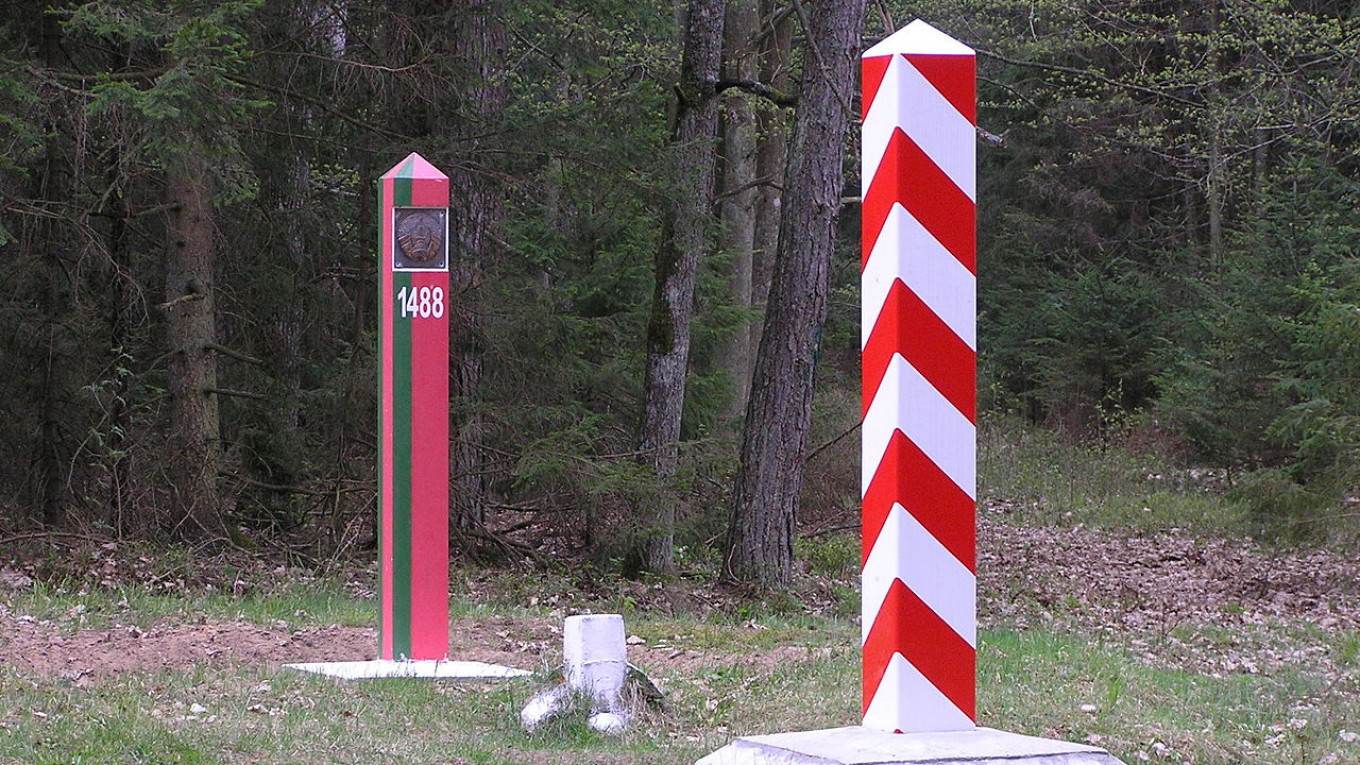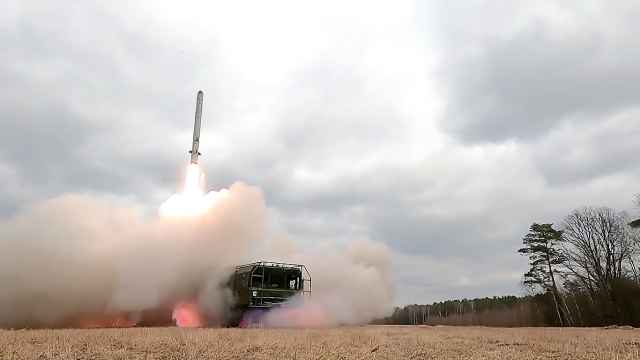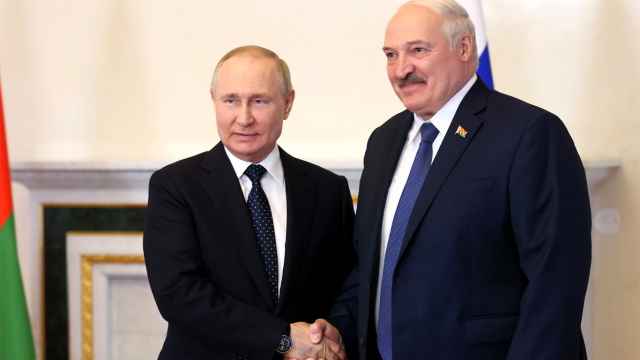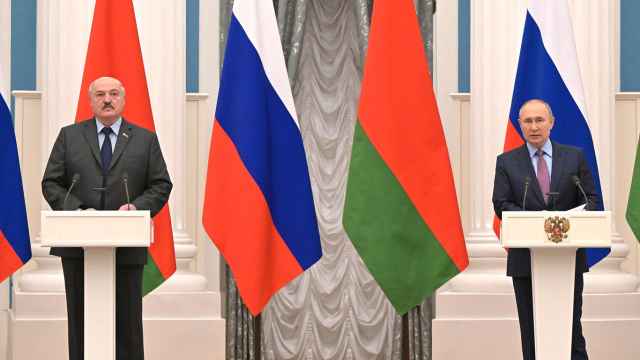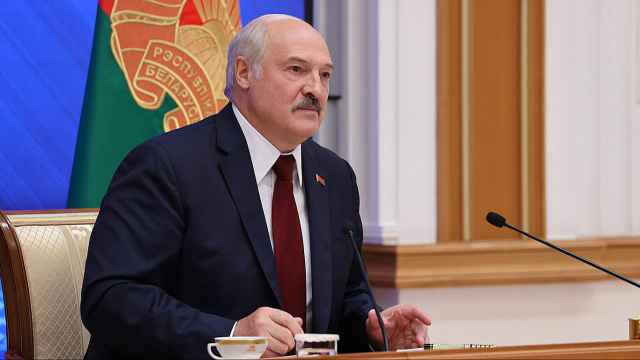Draped in white-red-white Belarusian opposition flags, exiled Belarusians protested on Saturday at the Polish frontier, calling for President Alexander Lukashenko to lift a border closure.
"Europe: It's time for action!", "Impose Sanctions Please!" read some of the placards, as dozens of protesters lined a road clogged with hundreds of trucks waiting to go through border checks.
"I have a feeling that an iron curtain is falling into place. It's frightening," said Lyubov Kovalchuk, who moved to Poland in December last year after being arrested for her activism.
"It's breaking up families," Kovalchuk, a 42-year-old with short ginger hair, told AFP.
Standing just a few hundred meters from the border checkpoint, her friend Katya Mirzoyeva, 63, said her fellow Belarusians were "living in a cage".
Belarus, a country of 9.5 million people, has been shaken by unprecedented mass protests since the disputed re-election last year of Lukashenko, who has ruled since 1994 with the support of Russia.
On December 22, Lukashenko announced the closure of the land border – ostensibly because of the pandemic, although many Belarusians suspect it was another way to clamp down on protests.
The border between Belarus and Poland, an EU and NATO member state, remains open for goods traffic.
'Another form of violence'
Kovalchuk said she had been able to travel back to Belarus twice because she had a visa for Poland.
But Belarus has now banned even people with foreign residence permits to leave following the international outcry after the arrest of a dissident journalist on a Ryanair flight that was diverted and forced to land in Minsk last month.
The closure "shows the government is illegitimate. It is another form of violence on its own citizens, on Belarusians," said Tatsiana Kulevich, 26, who left last year and now lives in Bialystok in Poland.
"It's frightening. People have to cross illegally or end up in prison," said Kulevich, who attended the protest with her husband Ruslan – a journalist for the Belarusian news portal Hrodna.life.
"A lot of people would like to leave because everyone is tired of living in fear," the 29-year-old said, as protesters played on drums and trumpets and some truckers honked their horns.
The couple said they were able to fly through Latvia but that option is no longer possible.
Following the arrest of Roman Protasevich and his girlfriend Sofia Sapega from the diverted flight, the EU has now banned all flights from Belarus.
That has made it even more difficult for the few who might have been able to leave to do so.
But opposition supporters lay the blame for the situation squarely on Lukashenko.
"It's Lukashenko who shut the land border," said Lena Zhivoglod, 30, an organiser of the border protests who was also forced to leave her country last year because of her political activism.
Belarusian opposition leader Svetlana Tikhanovskaya has urged Lukashenko to open the border for "emergency evacuations", saying there should be a chance for Belarusians to "escape the regime".
'We're waiting'
Zhivoglod said protesters intended to stay for several days and may try to block trucks entering from Belarus in order to make the point that the EU should impose economic sanctions.
"Belarusians have no time for measured action. We are asking Europe to adopt massive, immediate and effective sanctions," she said.
The EU has threatened economic sanctions, possibly against lucrative Belarusian exports such as oil, gas and potash, which is used to make fertiliser.
The trade turnover between Belarus and Poland before the pandemic hit in 2019 totalled around $3 billion.
In normal times, many Belarusians also travel to or emigrate to Poland. In 2019, Poland issued around 400,000 visas for Belarusian nationals.
For now, there is little exiled Belarusians can do but watch the diplomacy swirling around their homeland and hope something will change.
"We're waiting, we're waiting," said Ruslan Kulevich. Pointing to the protest, he added: "Maybe this will somehow help open up the border."
A Message from The Moscow Times:
Dear readers,
We are facing unprecedented challenges. Russia's Prosecutor General's Office has designated The Moscow Times as an "undesirable" organization, criminalizing our work and putting our staff at risk of prosecution. This follows our earlier unjust labeling as a "foreign agent."
These actions are direct attempts to silence independent journalism in Russia. The authorities claim our work "discredits the decisions of the Russian leadership." We see things differently: we strive to provide accurate, unbiased reporting on Russia.
We, the journalists of The Moscow Times, refuse to be silenced. But to continue our work, we need your help.
Your support, no matter how small, makes a world of difference. If you can, please support us monthly starting from just $2. It's quick to set up, and every contribution makes a significant impact.
By supporting The Moscow Times, you're defending open, independent journalism in the face of repression. Thank you for standing with us.
Remind me later.


